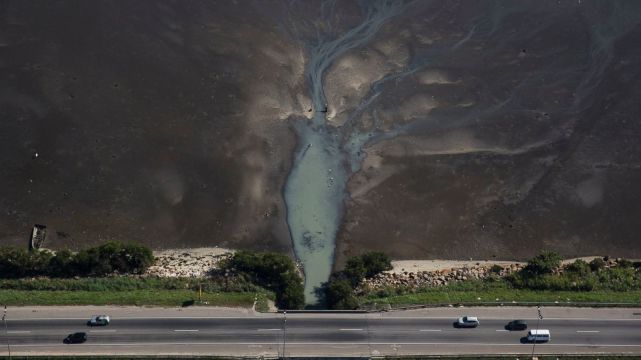
Source: ABC News
The 2016 Rio Olympics start in two days and in three days athletes will have to face the uncontrolled pollution debris and hazardous water contamination levels. The 1,400 athletes participating in water competitions and 300,000 to 500,000 foreigners expected to visit Rio de Janeiro and the beaches at Copacabana and Ipanema are at risk of becoming ill. This unfortunate predicament comes even after the city’s 2009 Olympic bid when authorities pledged that they would invest in a billion-dollar cleanup program to “regenerate Rio’s magnificent waterways.”
A 16-month-long study commissioned by the Associate Press revealed consistent and dangerously high levels of viruses from the pollution which is of extreme concern among sailors, rowers and open-water swimmers.
The first results of the AP study published over a year ago showed viral levels at up to 1.7 million times what would be considered worrisome in the United States or Europe. At those concentrations, swimmers and athletes who ingest just three teaspoons of water are almost certain to be infected with viruses that can cause stomach and respiratory illnesses and more rarely heart and brain inflammation — although whether they actually fall ill depends on a series of factors including the strength of the individual’s immune system.
Copacabana Beach, where the marathon and triathlon swimming are to be held and thousands of tourists are likely to take a dip, exceeded California’s limit five times over 13 months of testing.
The hope or expectation was for Rio to take the opportunity to tackle the decades-long public health issue, but with tests that reveal alarming results, athletes are forced to take elaborate precautions to prevent illnesses and most distressingly, risk their health for a dream they have dedicated years (or their entire lives) to participate in.
Nonetheless, that Brazil wasn’t able to solve or lower their water contamination in time for the Olympics does not mean that efforts to resolve the issue have halted. There are 20 separate proposals, all backed by different government and non-government organizations, to deal with the water pollution and solid waste challenges. The problem to getting any of these projects started is funding (given that Brazil is suffering from its worst recession in decades) but in putting extra effort into searching for private funding still gives us hope that someone will see the urgency in helping the people of Rio (especially once the Olympics start and news channels are broadcasting the issue worldwide).